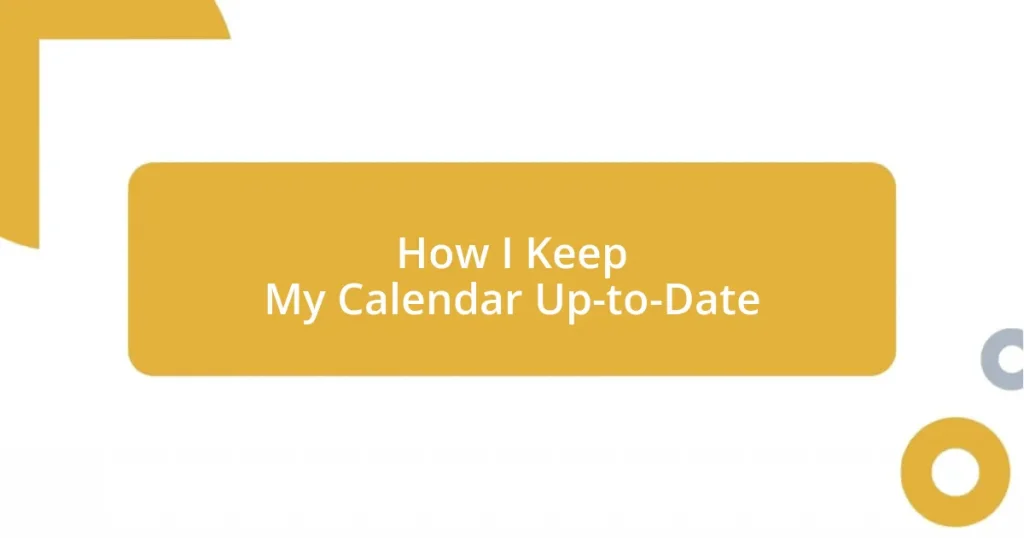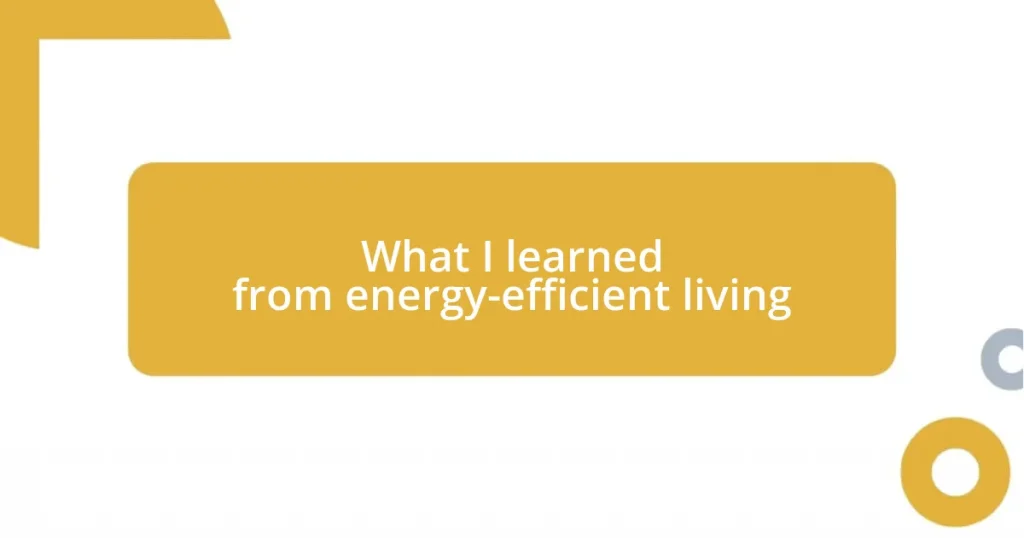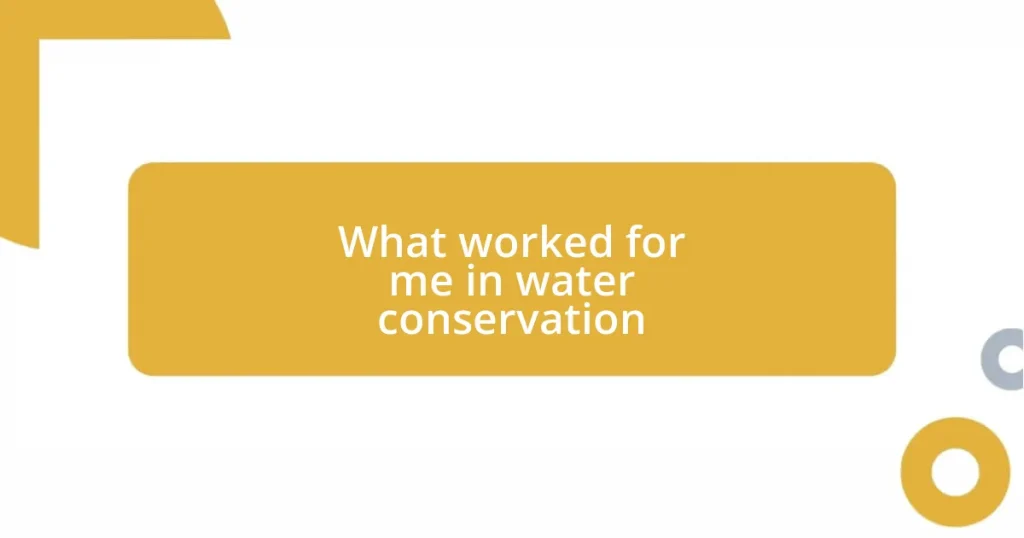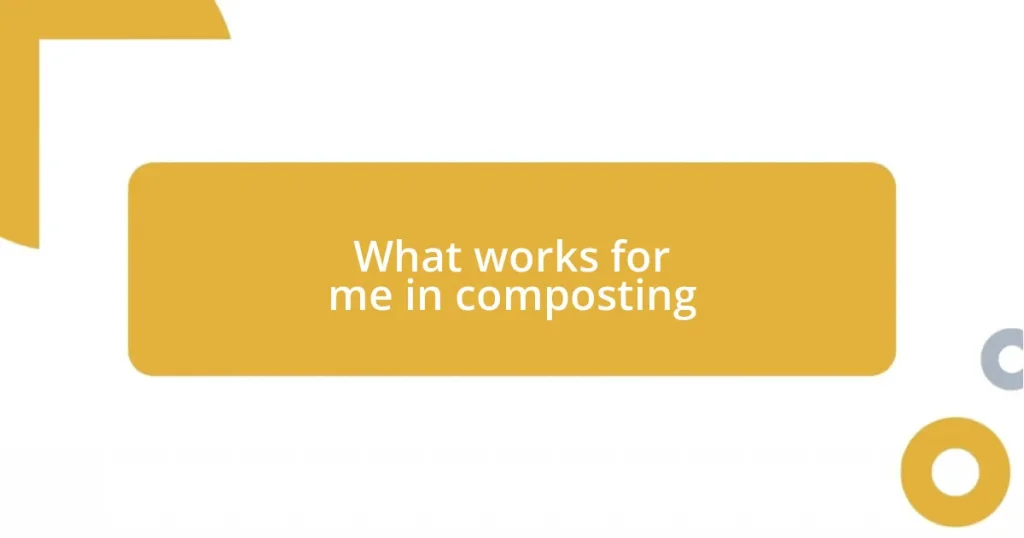Key takeaways:
- Choose a calendar tool that integrates with your email and syncs across devices for seamless access and organization.
- Establish a consistent schedule by aligning tasks with peak energy times and setting recurring events for self-care and productivity.
- Implement daily routines like morning reviews and evening updates to effectively manage your calendar and adjust priorities.
- Embrace flexibility by reassessing priorities and allowing for spontaneity in your schedule to reduce stress and enhance joy.

Choosing the right calendar tool
When it comes to choosing the right calendar tool, it’s essential to consider what features are truly important to you. I remember when I first started using digital calendars; I was overwhelmed by the options. After some trial and error, I realized that the tool’s integration with my email was a game-changer. It’s all about finding what works best for your daily rhythm.
Have you ever felt stressed trying to juggle too many events? I found that a calendar that syncs across devices alleviates that anxiety for me. Whether I’m on my laptop, tablet, or phone, I can access my schedule anytime and anywhere. That seamless connection keeps my life organized and helps me stay focused, which is invaluable.
Another aspect to consider is customization. Personally, I love being able to color-code my events. It adds a bit of personality to my calendar, and it makes it easier for me to quickly differentiate between work, personal tasks, and appointments. Isn’t it satisfying to glance at a well-organized, vibrant calendar?

Setting a consistent schedule
Setting a consistent schedule is something I’ve found transformative in maintaining my productivity. For instance, I try to allocate specific blocks of time each day for my priorities. Initially, it felt rigid, but now I view it as a framework that supports my spontaneous side while ensuring essential tasks don’t fall through the cracks.
What’s interesting is that I’ve noticed my energy levels fluctuate throughout the week. By aligning my most important tasks with peak energy times—like handling analytics when I’m most alert in the morning—I’ve seen a tangible boost in efficiency. Have you ever considered how a slight adjustment in timing could improve your output? When I made this change, my deadline stress significantly reduced.
I also value setting recurring events in my calendar. For example, within my weekly schedule, I have dedicated slots for project work, exercise, and even downtime. This recurring commitment acts as my personal guardrail, reminding me to take care of myself just as much as my work. Wouldn’t you agree it feels good to have that sense of balance?
| Schedule Type | Description |
|---|---|
| Time Blocking | Allocating specific periods for tasks to enhance focus and productivity. |
| Peak Energy Scheduling | Aligning tasks with your natural energy levels for maximum efficiency. |
| Recurring Events | Setting up repeated reminders for important self-care and project work. |

Daily routines for calendar management
Managing my calendar daily has become a crucial part of my routine. I’ve found that taking a few minutes each morning to review my upcoming day keeps me grounded. It’s almost like a mental warm-up for me; I visualize what’s ahead and adjust priorities if necessary. Sometimes, it feels overwhelming to see everything laid out, but acknowledging it upfront allows me to tackle the day with a focused mindset.
Here are some daily practices I’ve integrated into my routine for effective calendar management:
- Morning Review: Spend 5-10 minutes each morning to glance at the day’s schedule and prep mentally.
- Prioritize Tasks: Identify 2-3 key tasks for the day that align with your goals.
- Block Time for Deep Work: Schedule specific periods of uninterrupted time dedicated to critical tasks.
- Evening Update: Before winding down, take time to reflect on the day and adjust tomorrow’s calendar as needed.
- Check Off Completed Tasks: There’s something satisfying about marking tasks as complete, which keeps me motivated.
I can’t tell you how freeing it feels to glance at my calendar in the evenings and see how much I’ve accomplished. My calendar has also evolved from just a list of events to a roadmap that reflects my priorities and values. When I make a conscious effort to adapt it daily, I not only feel more in control of my time but also more engaged with my personal goals. Have you ever experienced that fulfillment when you realize a plan is truly working for you? It’s genuinely invigorating!

Weekly reviews and updates
I can’t emphasize enough how vital my weekly reviews are for staying on top of my calendar. Every Sunday, I carve out about 30 minutes to analyze the past week and pave the way for the one ahead. During this time, I assess what went well and what didn’t, almost like a mini debrief with myself. Have you ever noticed how looking back on your week can help clarify your goals? I find it illuminating; it’s an opportunity to adjust my focus and prioritize better for the week to come.
One habit I cherish is jotting down my achievements and challenges in my planner. It’s become my tradition to list a few things I accomplished, no matter how small. There’s something incredibly rewarding about tracking my progress. It not only boosts my morale but also helps me set realistic goals for the following days. Think about it: when was the last time you celebrated your small wins? I realized that by recognizing them, I cultivate a positive mindset that fuels my productivity moving forward.
Additionally, I set aside time to go through my upcoming commitments. I’ll shuffle things around if needed, ensuring that I tackle the most pressing tasks first. This systematic approach has transformed my calendar from a chaotic jumble into a beautifully streamlined roadmap. Every adjustment feels like fine-tuning an instrument, making everything in my life harmonize better. By actively engaging in this process each week, I don’t just maintain my calendar; I nurture my emotional well-being and professional direction too. Isn’t that a wonderful balance to strive for?

Utilizing reminders effectively
Effective use of reminders can be a game-changer for keeping my life organized. For me, setting reminders isn’t just about alerting myself to upcoming tasks; it’s also about fostering a sense of accountability. When I receive a notification, whether it’s for a meeting or a simple task, it feels like a gentle nudge to stay on track. Have you ever had that moment when a reminder popped up just in time to save you from a scheduling mishap? Those little reminders can make all the difference.
I also love to customize my reminders. Instead of a generic “meeting at 3 PM,” I might input something like, “3 PM: Catch up with Alex—bring ideas for the project!” This approach adds a personal touch and keeps me engaged with what I’m supposed to do. When I read that reminder, it triggers not just the task but also the motivation behind it. Do you find that specific reminders help you connect better with your responsibilities? I definitely do!
One practice I’ve adopted is to link reminders to my calendar events. For instance, when I schedule a lunch with friends, I’ll set a reminder a couple of hours in advance. This way, I have just enough time to prepare and get excited about seeing them. It’s almost like adding a layer of anticipation to my day. How do you incorporate reminders into your own routine? I’d encourage you to experiment with your reminders to see how they can enhance your productivity and even your emotional engagement with your daily activities.

Staying flexible with changes
Staying flexible with changes can often feel like a juggling act, but I’ve found that embracing this dynamic approach makes all the difference. For example, there have been days when unexpected commitments or sudden schedule shifts popped up. Instead of panicking, I remind myself that flexibility is a strength. I tweak my plans, often in real-time, which keeps my stress levels down and allows me to adapt to whatever life throws my way. Have you ever had to shuffle your day around? I bet you know that feeling!
I’ve also learned the importance of reassessing priorities as my calendar fills up. One time, I had three overlapping events, and it was a real test of flexibility. By taking a moment to evaluate what was most important, I was able to drop one commitment without guilt. I felt empowered in that decision, realizing that sometimes saying “no” is just as crucial as saying “yes.” Can you relate? Shifting my mindset this way not only lightened my load but also allowed me to focus more on what truly mattered.
Being open to change has taught me to embrace spontaneity instead of resisting it. Last month, I decided to leave a Saturday afternoon free after initially filling it up. On a whim, I accepted a friend’s invitation to a last-minute gathering, and it turned out to be a delightful break I didn’t even know I needed. That little detour brought about unexpected joy and deepened connections. How often do we miss out on those enriching experiences because we’re too tightly scheduled? Life has a beautiful way of surprising us when we give it space!















